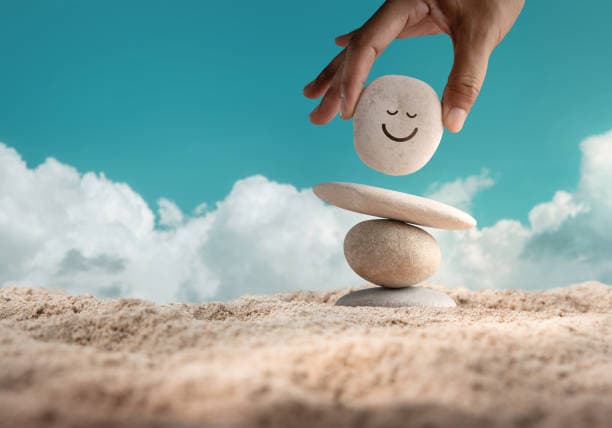Exploring the Essence of Happiness: Delving into What Truly Brings Us Joy
We frequently become entangled in the surface layers of joy in our unrelenting pursuit of happiness, mistaking fleeting joys for genuine bliss. In order to understand what happiness really is, this essay will examine what makes us happy in the truest sense and how we can live a fulfilling life from the inside out.
The Complex Nature of Contentment
A wide spectrum of pleasant emotions, from the deep delight of a significant event to the subdued contentment of a calm day, are included in the complex and multidimensional emotion of happiness. It is a process as well as a state of being that encompasses both our overall sense of life satisfaction and our specific experiences from moment to moment.
From a Psychological Angle
Although the components of happiness have long been a topic of discussion among psychologists, most of them concur that it consists of aspects of emotional health, life satisfaction, and a feeling of direction or meaning. According to this holistic perspective, experiencing true happiness involves feeling right as well as good—that is, leading an engaged, productive life that is consistent with our beliefs.
The Happiness Pillars
Happiness is based on human connection. Support, affection, and a feeling of community are provided through relationships with family, friends, and the community. Strong social ties are associated with greater happiness, health, and longevity than weaker ones, according to studies.
Objective
Happiness also depends critically on having a feeling of purpose. This entails doing things that we find meaningful, whether they are volunteer work, our jobs, or our interests. Secular joys cannot compare to the sense of fulfillment and direction that comes from living a life guided by purpose.
Thank You
Having gratitude in your life can make you happier. We can change our perspective from one of scarcity to abundance by concentrating on the good things in our lives and being grateful for what we already have. It has been demonstrated that cultivating thankfulness through journaling and other practices increases happiness and wellbeing.
Adaptability
There will certainly be obstacles and failures in life. To be happy in the face of hardship requires resilience, or the capacity to overcome obstacles. Failures are not insurmountable barriers to overcome; rather, resilient people view them as chances to grow and learn.
Developing Joy in Everyday Life
Being present in the moment can greatly increase our happiness. We may experience life more completely and feel less stressed when we engage in mindfulness practices like meditation and mindful breathing. These techniques also help us become more aware of our thoughts and feelings.
Self-Soothing
Happiness depends on taking good care of our bodily and mental well-being. This entails getting enough sleep, maintaining a nutritious diet, exercising frequently, and indulging in rejuvenating and relaxing activities. Moreover, self-care entails establishing limits and declining requests that sap our vitality.
Constant Development
A profound sense of fulfillment and enjoyment can come from pursuing personal development and picking up new talents. Our minds are stimulated, kept engaged, and given a sense of progress and achievement by challenges and learning chances.

Easygoing
Adopting a simple lifestyle can be freeing in a society where materialism and happiness are frequently connected. A more meaningful life can be attained by cutting back on our wants, simplifying our lives, and concentrating on the things that really count.
Getting Rid of Happiness Myths
Our culture is rife with the myth of perfection, which holds that happiness can only come from an ideal existence, immaculate accomplishments, and unwavering optimism. This idea can cause a person to constantly criticize themselves, feel disappointed, and feel inadequate because they think that “perfection” is always out of reach. Recognizing imperfection as a normal and worthwhile aspect of the human experience is essential to dispelling this misconception. Understanding that errors and failures are chances for development and education might help us adopt a more resilient and self-compassionate mindset. Finding pleasure can be easier and more genuine when we accept that we are “good enough” for our lives, ourselves, and our efforts.
Financial Stability
Another enduring myth is the idea that material wealth and happiness are synonymous. According to this perspective, obtaining riches, belongings, and prestige is necessary for living a happy life. But as time goes on, studies reveal that having more money does not significantly increase our level of satisfaction beyond covering our fundamental necessities. The constant chase of wealth frequently results in a vicious cycle of want and discontent since each acquisition only offers fleeting happiness. Focus on events, connections, and pursuits that meaningfully enhance your life in order to dispel this illusion. Purchasing material items rarely produces the same level of long-term enjoyment as investing in experiences like travel, education, and quality time with loved ones.
Joy as a Final Destination
A lot of people fall into the trap of conditional happiness, thinking that they will be content after they accomplish a particular objective, such as getting their ideal career, meeting their ideal partner, or hitting a certain financial milestone. With this kind of thinking, happiness becomes a far-off place that is never going to be reached because of other wants and aspirations. It takes a change in perspective to overcome this myth, one that emphasizes enjoying the trip and living in the moment. Happiness is a dynamic feeling that comes and goes rather than a fixed condition that must be attained and sustained. Embracing life’s problems as a necessary part of the road, appreciating what you have right now, and practicing thankfulness can all help to turn your pursuit of happiness into a more enjoyable and satisfying journey.
Final Reflections on Myths
For everyone looking for a more true and meaningful happiness, dispelling these fallacies is essential. We can pave the way for a more gratifying and durable kind of joy by eschewing the pursuit of perfection, reassessing the value of financial prosperity, and accepting happiness as a process rather than an end in and of itself. Making the decision to concentrate on the things that really count—meaningful relationships, personal development, and discovering purpose in life—is necessary for this. By making these mental changes, we open ourselves up to the possibility of happiness that is deeper, longer-lasting, and not just more achievable.
In summary
Examining the fundamentals of pleasure indicates that genuine happiness stems from a strong feeling of purpose, connection, thankfulness, and resilience rather than from accomplishments or material belongings. Through the everyday cultivation of these qualities, we may lay the groundwork for enduring enjoyment that withstands life’s ups and downs. Being happy is a decision and a lifestyle that calls for self-care, attention, and a dedication to simplicity and progress. We can find the genuine meaning of happiness and live a life that is not only meaningful but also incredibly pleasant by adopting this comprehensive approach.
The Philosophical Foundations of Gambling: Luck and Rational Decision-Making
We frequently become entangled in the surface layers of joy in our unrelenting pursuit of happiness, mistaking fleeting joys for genuine bliss. In order to understand what happiness really is, this essay will examine what makes us happy in the truest sense and how we can live a fulfilling life from the inside out. The …
The Philosophy of Happiness and Decision-Making
We frequently become entangled in the surface layers of joy in our unrelenting pursuit of happiness, mistaking fleeting joys for genuine bliss. In order to understand what happiness really is, this essay will examine what makes us happy in the truest sense and how we can live a fulfilling life from the inside out. The …
